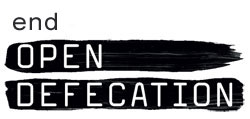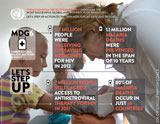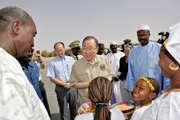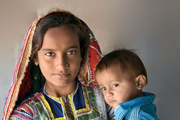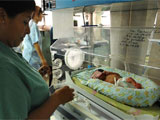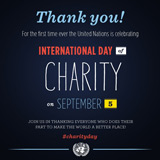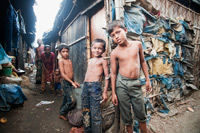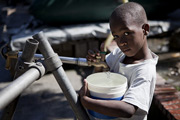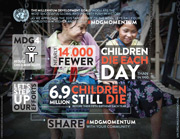Archive
Supporting the Global Fund to Fight AIDS
Global partners recently committed $12 billion to the UN-backed fund to fight AIDS, Tuberculosis and Malaria.
“Financing committed now will straddle the 2015 deadline for achieving the Millennium Development Goals, sending a clear signal that we will do everything possible to reach our targets,” Secretary-General Ban Ki-moon said.
Creating a sustainable food future
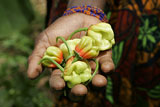
A new report by the UN and its partners finds that the world will need 70 per cent more food in order to feed a global population of 9.6 billion people in 2050.
The report, entitled “World Resources Report: Creating a Sustainable Food Future,” offers “menu items” for improving the way people produce and consume food.
AIDS by the numbers
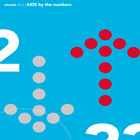
The world continues making progress towards the goal of ending the AIDS epidemic, according to a new report by the Joint United Nations Programme on HIV/AIDS (UNAIDS). In some regions however, many people have inadequate access to essential HIV services. World AIDS Day will be observed on 1 December.
Time for Action
“By working together and investing in governance, security, resilience and opportunity for women and young people, we can help the Sahel move from fragility to sustainability,” Secretary-General Ban Ki-moon said in his visit to the Sahel region with leaders from the World Bank, African Union, African Development Bank and the EU. Global leaders have pledged over $8 billion to boost economic growth.
State of World Population 2013
Every day in developing countries, 20,000 girls below age 18 give birth, according to a new report issued by the UN Population Fund, (UNFPA). Adolescent pregnancy directly impacts health, education, employment and a girl’s rights.
International Day for the Eradication of Poverty

Observances of the International Day for the Eradication of Poverty at United Nations Headquarters, and around the world focused on finding ways to end the discrimination that people face because of poverty.
World Food Day
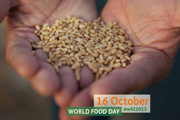
Every day, more than 840 million people go hungry in a world. Each year, the international community observes World Food Day on 16 October to help mobilize action and raise awareness on food security issues.
The theme for this year’s World Food Day is “Sustainable Food Systems for Food Security and Nutrition.”
UNGA Adopts MDG Special Event Outcome
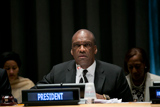
H.E. John W. Ashe, President of the
68th session of the General Assembly
The UN General Assembly on 9 October adopted the outcome of the Special Event to Follow-Up Efforts towards Achieving the Millennium Development Goals (MDGs). Across all acceleration efforts, Member States agreed to scale-up action on the MDGs that are most off-track and to sustain efforts where there is great progress.
MDGs hunger target within reach
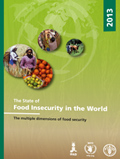
The ‘State of Food Insecurity in the World 2013’ notes that developing regions as a whole have registered significant progress towards the MDG 1 hunger target.
The number of hungry people in the world is now 842 million, down from 868 million reported a year ago.
Delivering the global education promise
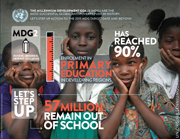
One year after the launch of the Secretary-General’s Global Education First Initiative, dignitaries, activists and education leaders celebrated the remarkable progress made towards increasing education access and discussed ways to ensure full delivery of the global education promise.
Speakers included Secretary-General Ban Ki-moon, World BankGroup President Jim Yong Kim, Desmond Tutu and Malala Yousafzai.
Scaling up action for the Millennium Development Goals
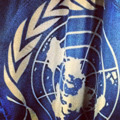
At a Special Event on the Millennium Development Goals (MDGs) hosted by the President of the UN General Assembly, world leaders agreed to scale up action against extreme poverty, hunger and disease and called for a 2015 Summit to adopt the next set of Goals to focus continued efforts after the target date for the MDGs. Learn more.
UN mobilizes innovative partnerships to achieve global anti-poverty goals
At his high-level event on the MDGs, United Nations Secretary-General Ban Ki-moon galvanized Heads of State, business leaders and philanthropists into joint action against extreme poverty, hunger and disease.
Commitments to boost MDG achievement were announced today, bringing the total to $2.5 billion in new commitments ahead of the 2015 target date for the Goals.
MDG Gap Task Force Report 2013
To accelerate progress on the Millennium Development Goals (MDGs), the MDG Gap Task Force Report 2013 stresses that the international community must recommit to increasing aid and reaching a consensus on a development-oriented multilateral trade agreement.
.
Committing to Child Survival: A Promise Renewed
The annual number of under-five deaths fell from an estimated 12.6 million in 1990 to approximately 6.6 million in 2012, according to a new report from UNICEF.
The report urges the global community to take immediate action to accelerate progress in reducing the rate of under-five mortality by two-thirds by 2015.
First-ever International Day of Charity
Recognizing the role of charity in alleviating poverty, the United Nations marks the first-ever International Day of Charity at UN Headquarters in New York.
“At a time when we aim to accelerate our efforts to achieve the Millennium Development Goals and define a bold agenda for the period beyond 2015, the role of charity can and should grow,” the Secretary-General said.
Accelerating progress for the MDGs and post-2015
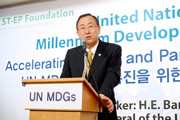
Secretary-General Ban Ki-moon addressed the diplomatic corps in the Republic of Korea about the need to accelerate progress with the Millennium Development Goals (MDGs) and also highlighted the UN’s efforts to facilitate an inclusive post-2015 development agenda.
“When we succeed in saving lives and supporting countries through the MDGs, we give credibility and momentum to the post-2015 process,” the Secretary-General said.
A Life of Dignity for All
On 25 September, the President of the 68th session of the General Assembly will host a Special Event on the MDGs, during a week of high-level events at UN Headquarters in New York. At the event, Secretary-General Ban Ki-moon will present to UN Member States his new report on MDG acceleration and the post-2015 development agenda – “A Life of Dignity for All”.
“Ours is the first generation with the resources and know-how to end extreme poverty and put our planet on a sustainable course before it is too late”, says the Secretary-General, in the report.
Progress on Sanitation and Water for All
Countries have made notable progress in scaling up community-based approaches to improving sanitation, according to a new report launched by the Sanitation and Water for All partnership. The report also identifies areas where more can be done in improving the effectiveness and sustainability of service delivery.
“Our challenge now is to maintain momentum and eliminate barriers to delivering the remaining commitments,” Deputy Secretary-General Jan Eliasson said in a statement.
International Youth Day focuses on youth migration
Highlighting the many risks and opportunities of young migrants and their diversity is the main focus of this year’s International Youth Day, which was celebrated at UN Headquarters and around the world on 12 August.
“It is important to emphasize the positive contribution young migrants make to societies of origin, transit and destination – economically and by enriching the social and cultural fabric,” UN Secretary-General Ban Ki-moon said in his message. Follow Youth Day activities.
UN engages in global dialogue with youth
Ahead of International Youth Day on 12 August, United Nations Secretary-General Ban Ki-moon and UN officials heard concerns from young people in a live interactive video dialogue with youth delegates from across the world.
“The message is clear. You want more and better job opportunities, a good education, access to affordable quality health care, responsive and honest governments, and increased efforts to tackle climate change,” the Secretary-General said in his address to over 700 youth. Watch the interactive discussion!
‘Malala Day’ aims to boost access to education worldwide
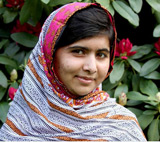
© A World at School 2013
Malala Yousafzai, the young Pakistani champion for universal education and girls’ rights, made her first high level public appearance at the United Nations on 12 July. At the heart of “Malala Day” is a call to improve the lives of some 57 million out of school children by improving education access by 2015. The Day also celebrated Malala’s 16th birthday.
Join the call to support the Global Education First Initiative by posting photos, Vine & Instragram videos using the hashtag #MalalaDay and sign-up online to say you stand with Malala. View photos and video from Malala Day.
More targets within reach -- MDGs Report 2013
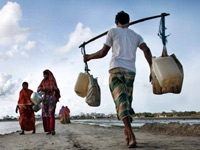
The new Millennium Development Goals (MDGs) Report 2013 shows that the combined actions of national governments, the international community, civil society and the private sector are making the achievement of the MDGs a reality. "The MDGs have proven that focused global development objectives can make a profound difference," UN Secretary-General Ban Ki-moon said.
Learn how the MDGs are the most successful global anti-poverty push in history and help share #MDGmomentum.
38 countries meet MDG hunger target early
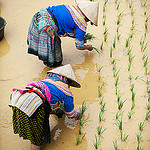
Chalking up successes ahead of the 2015 deadline for the Millennium Development Goals (MDGs), 38 countries have met internationally-established targets in the fight against hunger.
The Food and Agriculture Organization’s Director-General José Graziano da Silva made the announcement at a press conference in Rome.
“These countries are leading the way to a better future,” he said. “They are proof that with strong political will, coordination and cooperation, it is possible to achieve rapid and lasting reductions in hunger.”
Building support for global learning

According to a new paper from the United Nations Education, Scientific and Cultural Organization (UNESCO), progress in reducing the number of out-of school children is slowing down.
Data from the UNESCO Institute for Statistics (UIS) and the Education for All (EFA) Global Monitoring Report shows there were still 57 million children out of school in 2011, a drop of only 2 million from the previous year.
To tackle challenges to global learning, a high-level discussion will take place in New York on 11 June in support of the United Nations Secretary-General’s Global Education First Initiative (GEFI). GEFI aims to raise the political profile of education, strengthen the global movement to achieve quality education and generate additional and sufficient funding through sustained advocacy efforts.
UN joins global leaders in new compact to eliminate malnutrition
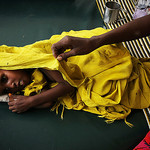
United Nations Secretary-General Ban Ki-moon, world leaders, businesses, as well as civil society organizations joined forces to support the "Global Nutrition for Growth" compact, making concrete commitments to improve world nutrition. According to the document, "Addressing nutrition is of critical importance for achieving the MDGs, in particular the MDGs related to hunger, child and maternal health, and education."
The compact offers concrete actions supporting better nutrition globally over the next seven years. Donors secured new commitments of up to $4.15 billion to tackle under-nutrition up to 2020.
In a video message to the event, the United Nations Secretary-General said, "These commitments can support children’s development, help hundreds of millions of people and boost the economies of some of the world’s most vulnerable countries. The UN system and I will do everything within our power to see them fulfilled."
World Environment Day: Tackling global food waste

Senior United Nations officials urged everyone to play their part in decreasing food loss and waste for World Environment Day (WED), celebrated 5 June. “We live in a world of plenty, where food production outstrips demand, yet 870 million people are undernourished and childhood stunting is a silent pandemic. To create the future we want, we must correct this inequity,” the Secretary-General said in his message for the Day.
To help reduce food waste, the United Nations Environment Programme (UNEP), the UN Food and Agricultural Organization (FAO) and public and private sector partners have launched the “Think.Eat.Save: Reduce Your Foodprint” campaign to raise global awareness and showcase everyday solutions that everyone can practice.
Complementing World Environment Day, UNEP and partners released a new report that highlights how investment in smallholder farmers can play a greater role in food security and can help lift over one billion people out of poverty.
The State of Food and Agriculture 2013
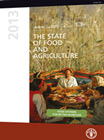
The UN Food and Agriculture Organization (FAO) released a new report entitled, The State of Food and Agriculture 2013: food systems for better nutrition. New findings indicate that 12.5 per cent of the world’s population is undernourished in terms of energy intake.
According to the study, “The traditional role of agriculture in producing food and generating income is fundamental, but agriculture and the entire food system – from inputs and production, through processing, storage, transport and retailing, to consumption – can contribute much more to the eradication of malnutrition.”
Supporting pathways for development in Africa
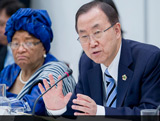
United Nations Secretary-General Ban Ki-moon and senior UN officials recently participated in the Fifth Tokyo International Conference on African Development (TICAD V), in Yokohama, Japan. In his opening remarks, the Secretary-General said, “We are committed to helping Africa realize the Millennium Development Goals, (MDGs). We will make sure Africa’s priorities are fully reflected in our post-2015 development agenda.”
UN officials engaged in a thematic session at TICAD V on the development of a post-2015 development agenda to succeed the eight MDG anti-poverty targets. At a separate event on malaria, the Secretary-General called for additional funding for the Roll Back Malaria Partnership and the UN-backed Global Fund to Fight AIDS, Tuberculosis and Malaria.
The head of the UN Development Programme (UNDP) moderated a panel at the Tokyo Conference to identify priority actions for closing gender equality gaps in Africa and ensuring that gender equality is central to the post-2015 development agenda.
A New Global Partnership
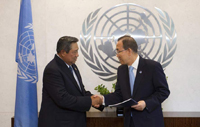
Secretary-General Ban Ki-moon (right)
receives the report from High-Level Panel
co-Chair President Susilo Bambang
Yudhoyono of Indonesia. Photo credit:
UN Photo/Mark Garten
A New Global Partnership: Eradicate Poverty and Transform Economies through Sustainable Development containing new and far-reaching proposals for completely ending extreme poverty by 2030 was released 30 May by the independent High-Level Panel of 27 eminent persons appointed by Secretary-General Ban Ki-moon and chaired by President Susilo Bambang Yudhoyono of Indonesia, President Ellen Johnson Sirleaf of Liberia and Prime Minister David Cameron of the United Kingdom.
The report calls for an ambitious and universal agenda that builds on the successes of the MDGs and promotes sustainable development, good governance, human rights and building institutions. Mr. Ban told the General Assembly, “We are at the beginning of an historic journey.” Read the UN News Centre’s story.
Africa making great strides toward many MDG targets: UN report
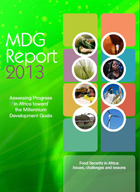
Photo credit: Bridget
Ejegwa/UNDP
Converting Africa’s impressive economic performance over the past decade into greater gains on the Millennium Development Goals remains a primary challenge for Africa, according to the recently launched MDG Report 2013: Assessing progress in Africa toward the Millennium Development Goals.
The report was prepared by the African Union Commission, United Nations Economic Commission for Africa, UNDP and the African Development Bank Group.
While Africa is the world’s second fastest growing region, its poverty reduction rate is still not on track to halve extreme poverty by 2015.
The report says that a concerted effort to improve agriculture, food distribution and nutrition would fast-track MDG progress.
UN urges efforts to achieve ‘water secure world’ on International Day for Biological Diversity
Unless greater efforts are made to reverse current trends, the world will run out of freshwater, United Nations Secretary-General Ban Ki-moon said in his message marking the Day. “As the international community strives to accelerate its efforts to achieve the Millennium Development Goals and define a post-2015 agenda, including a set of goals for sustainable development, water and biodiversity are important streams in the discussion,” he said.
At a press conference at Headquarters, Braulio de Souza Dias, Executive Secretary of the Convention on Biological Diversity, stressed the role that natural ecosystems can play in providing clean, safe water at low cost. Find out more at the UN News Centre.
MDGs-health targets make gains
The World Health Statistics 2013 report cites progress in reducing child and maternal deaths, improving nutrition and reducing deaths and illness from HIV infection, tuberculosis and malaria.
“Intensive efforts to achieve the MDGs have clearly improved health for people all over the world,” says Dr. Margaret Chan, Director-General of the World Health Organization, (WHO). “However, the situation is far from satisfactory as progress is uneven and large gaps persist between and within countries,” adds the Director-General.
World Health Statistics 2013 contains WHO’s annual compilation of health-related data for its 194 Member States, and includes a summary of the progress made towards achieving the health-related Millennium Development Goals (MDGs) and associated targets.
WHO and UNICEF call for progress on sanitation
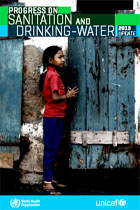
Some 2.4 billion people will remain without access to improved sanitation in 2015 but faster progress on sanitation is possible, according to a joint WHO/UNICEF report. “There is an urgent need to ensure all the necessary pieces are in place – political commitment, funding, leadership – so the world can accelerate progress and reach the Millennium Development Goal (MDG) sanitation target” said Dr. Maria Neira, WHO Director for Public Health and Environment.
Among the key findings from the latest 2011 data, the report highlights that almost two-thirds of the world’s population had access to improved sanitation facilities, an increase of almost 1.9 billion people since 1990. The MDG drinking water target had been met and surpassed by 2010.
The report complements the call to action by United Nations Deputy Secretary-General Jan Eliasson for the world community to increase investment in proper sanitation and end open defecation by 2025.
Taking action for ‘Every Woman, Every Child’
Spearheaded by United Nations Secretary-General Ban Ki-moon, the Every Woman Every Child (EWEC) effort aims to save the lives of 16 million women and children by 2015.
EWEC has brought together over 200 partners and secured new funding for women’s and children’s health. With less than 1000 days until the 2015 target of the Millennium Development Goals (MDGs), initiatives such as EWEC play a key role in building partnerships to accelerate achievements for improving maternal and child health.
The UN Foundation, JP Morgan and the MDG Health Alliance organized a 'Taking Action' summit in New York on 7 May to spotlight the key role the private sector can play in improving maternal health.
On 8 May, as part of the Global Mom Relay in support of the EWEC, Arianna Huffington, Jennifer Lopez and others participated in Mom+Social to connect moms everywhere through the power of social media. Get involved today!
Midwives contribute to progress on health-related MDGs
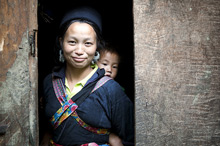
Sapa, Viet Nam. UN Photo/Kibae Park.
The United Nations Population Fund (UNFPA) and the International Confederation of Midwives (ICM) urged nations to work together to address the inequalities and inaccessibility of midwifery services. According to UNFPA, midwives save the lives of some 300,000 women each year and 10 times as many infants.
In a joint statement for the International Day of the Midwife, UNFPA and ICM stated, “The tireless work of midwives is also a crucial step towards achieving the Millennium Development Goals (MDGs) 4 and 5, targets A and B, by 2015 and beyond.” 5 May marked the International Day of the Midwife.
Glimmers of hope

Herat, Afghanistan. UN Photo/
Eric Kanalstein
World Bank analysis from the Global Monitoring Report 2013 reveals that twenty fragile and conflict-affected states have recently met one or more targets under the Millennium Development Goals (MDGs). The greatest progress has been on gender parity in education. The analysis also finds that eight fragile and conflict affected states have met the goal to halve extreme poverty and six fragile and conflict-affected countries have met the target on improved access to water.
World Bank Group President Jim Yong Kim said, “While these successes offer hope, the reality is that far too many fragile and conflict-affected countries lag behind the rest of the world. We need to offer timely and critical support to improve the lives of people living in these fragile countries.”
Asia-Pacific launch of Zero Hunger Challenge
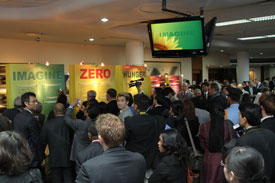
Photo Credit: UN ESCAP
The United Nations Economic and Social Commission for Asia and the Pacific (ESCAP) launched the Zero Hunger Challenge in the region on 29 April in Bangkok. “The attainment of the Millennium Development Goal on poverty and hunger in this region during the remaining 1,000 days in a big push is the first step to eliminating hunger,” Deputy Secretary-General Jan Eliasson said.
“Sustainable development and inclusive growth will not happen on empty stomachs,” said Noeleen Heyzer, Under-Secretary-General and ESCAP’s Executive Secretary.
The Challenge, launched by the Secretary-General at Rio+20, has five objectives concerning food access, stunting, sustainability, productivity and waste.
Invest in the Future: World Malaria Day
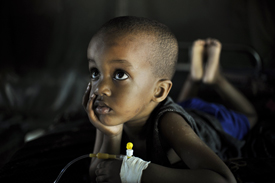
Mohammed, suffering from malaria, recovers at a
Burundian run clinic in Somalia's capital, Mogadishu.
Every year, there are about 660,000 malaria deaths globally, 91 per cent of which are in Africa, according to the World Health Organization![]() .
.
“Controlling malaria does more than improve human health. It boosts social well-being and economic development,” the Secretary-General said in his World Malaria Day message.
To help galvanize efforts for fighting the disease, on 25 April United Nations offices and partners around the world will hold special events, exhibits and film screenings to observe World Malaria Day.
“Invest in the future: defeat malaria” is the theme partners chose for the next three years to call attention to the big push needed to achieve the 2015 Millennium Development Goals and defeat malaria in the future.
The Roll Back Malaria map of activities worldwide shows many ways people can raise awareness of the preventable disease that kills 1 child every 60 seconds. View a special video for Malaria Day.
Boosting progress on education targets
 Secretary-General Ban Ki-moon announced that talks with the World Bank will focus on education, climate change and sustainable energy, poverty, and the role of development banks.
Secretary-General Ban Ki-moon announced that talks with the World Bank will focus on education, climate change and sustainable energy, poverty, and the role of development banks.
In support of the Secretary-General's Global Education First Initiative (GEFI), a series of events are taking place in Washington, D.C., for the final sprint to achieve the global education targets by 2015. Events will culminate in the Learning for All Ministerial on 18 April at the World Bank, which will be webcast live. The Ministerial meetings will focus on improving access to education and quality of education in eight countries that are home to about one-half of the world’s out-of-school children.
On 19 April, the Secretary-General will engage in a conversation on ending poverty with World Bank Group President Jim Yong Kim. The public is invited to participate in the conversation using #ittakes.
A Matter of Life: Investing in Sanitation
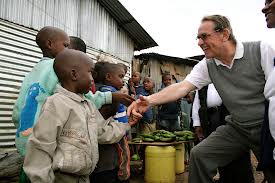 Deputy Secretary-General Jan Eliasson is joining Secretary-General Ban Ki-moon at the 2013 Spring Meetings of the World Bank Group and the International Monetary Fund. The Deputy Secretary-General is expected to highlight the crucial issues of sanitation and the rule of law.
Deputy Secretary-General Jan Eliasson is joining Secretary-General Ban Ki-moon at the 2013 Spring Meetings of the World Bank Group and the International Monetary Fund. The Deputy Secretary-General is expected to highlight the crucial issues of sanitation and the rule of law.
Sanitation remains one of the most off-track Millennium Development Goals, with 2.5 billion people still lacking access, leading to thousands of child deaths every day.
On 19 April at 2 p.m., Deputy Secretary-General Jan Eliasson will join UNICEF Executive Director Anthony Lake, World Bank Group Vice President of Sustainable Development Rachel Kyte, and American Standard Vice President Jim McHale in an interactive online conversation about the economics and politics of sanitation. The event can be followed on Twitter with #wblive.
MDG Momentum: 1000 Days of Action
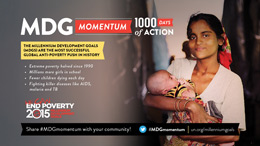 The United Nations and partners worldwide are observing 1,000-days to the 2015 target date for the Millennium Development Goals (MDGs). "We now have less than 1,000 days to close the gaps and accelerate action. That means scaling up success, empowering women and girls, keeping fiscal promises, and mobilizing people from governments to the grassroots," said Secretary-General Ban Ki-moon at a recent MDGs event at the United Nations.
The United Nations and partners worldwide are observing 1,000-days to the 2015 target date for the Millennium Development Goals (MDGs). "We now have less than 1,000 days to close the gaps and accelerate action. That means scaling up success, empowering women and girls, keeping fiscal promises, and mobilizing people from governments to the grassroots," said Secretary-General Ban Ki-moon at a recent MDGs event at the United Nations.
The UN has been working with partners around the world to build momentum and accelerate MDG progress on issues such as proper sanitation, maternal health, education and gender equality. To learn how the MDGs are fighting poverty, please visit the MDG Momentum page and get involved to help build #MDGmomentum worldwide!
World Water Day
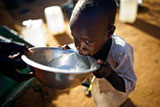 Events are being held worldwide to mark World Water Day (WWD), observed annually on 22 March. In his message for Water Day, United Nations Secretary-General Ban Ki-moon said, “On this World Water Day, I appeal for heightened cooperation. Water is a common resource. Let us use it more intelligently and waste less so all get a fair share.”
Events are being held worldwide to mark World Water Day (WWD), observed annually on 22 March. In his message for Water Day, United Nations Secretary-General Ban Ki-moon said, “On this World Water Day, I appeal for heightened cooperation. Water is a common resource. Let us use it more intelligently and waste less so all get a fair share.”
United Nations Deputy Secretary-General Jan Eliasson also launched a call for urgent global action to help end the crisis of 2.5 billion people without basic sanitation. Over 3,000 children die per day due to health risks associated with poor sanitation and lack of clean water.
WWD is coordinated by UNESCO in collaboration with UNECE and UNDESA on behalf of UN-Water.
2013 Global MDG Conference
 UNDP organized the Global MDG Conference in Bogota, Colombia, 27-28 February, where more than 100 participants from nearly 40 countries exchanged views on how best to accelerate efforts for the MDGs ahead of the 2015 target date. In her opening remarks, UNDP Administrator Helen Clark said, “As countries get closer to reaching the MDG targets, dedicated policies and actions are needed to go the last mile to reach those still excluded.” Conference participants also discussed building an ambitious post-2015 development agenda founded on MDG achievements.
UNDP organized the Global MDG Conference in Bogota, Colombia, 27-28 February, where more than 100 participants from nearly 40 countries exchanged views on how best to accelerate efforts for the MDGs ahead of the 2015 target date. In her opening remarks, UNDP Administrator Helen Clark said, “As countries get closer to reaching the MDG targets, dedicated policies and actions are needed to go the last mile to reach those still excluded.” Conference participants also discussed building an ambitious post-2015 development agenda founded on MDG achievements.
Supporting health-related MDGs

The Secretary-General has tasked his Special Envoy for Malaria, Ray Chambers, with helping build political will and financial support for achieving the health-related Millennium Development Goals (MDGs). The health-related MDGs involve reducing child and maternal mortality, HIV/AIDS, malaria and tuberculosis and other diseases by 2015. Significant progress has been observed over the last decade, however, many countries remain held back by insufficient funding for meeting certain health goals.
International Year of Water Cooperation
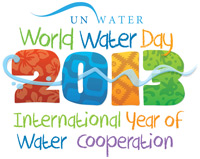 This week, the United Nations launched the International Year of Water Cooperation at the UN Educational, Scientific and Cultural Organization’s (UNESCO) Headquarters in Paris, France. The International Year will raise awareness and facilitate action on water cooperation as it relates to sustainable and economic development, climate change and food security. 22 March will also mark World Water Day. Follow updates on the International Year of Water Cooperation. Watch the United Nations Secretary-General deliver a special message.
This week, the United Nations launched the International Year of Water Cooperation at the UN Educational, Scientific and Cultural Organization’s (UNESCO) Headquarters in Paris, France. The International Year will raise awareness and facilitate action on water cooperation as it relates to sustainable and economic development, climate change and food security. 22 March will also mark World Water Day. Follow updates on the International Year of Water Cooperation. Watch the United Nations Secretary-General deliver a special message.
Promoting people’s empowerment
 The Fifty-First Session of the United Nations Commission on Social Development concluded in New York. The priority theme this year is “Empowerment of people in achieving poverty eradication, social integration and full employment and decent work for all”. The Commission explored experiences, challenges and strategies to promote people's empowerment in the framework of social development. “When people are empowered, they become agents of change,” noted Wu Hongbo, the United Nations Under Secretary-General for Economic and Social Affairs. Follow updates from the Session.
The Fifty-First Session of the United Nations Commission on Social Development concluded in New York. The priority theme this year is “Empowerment of people in achieving poverty eradication, social integration and full employment and decent work for all”. The Commission explored experiences, challenges and strategies to promote people's empowerment in the framework of social development. “When people are empowered, they become agents of change,” noted Wu Hongbo, the United Nations Under Secretary-General for Economic and Social Affairs. Follow updates from the Session.
African leaders & governments to speed up reduction of maternal deaths
 At a Special Event on the Campaign for Accelerated Reduction of Maternal Mortality, (CARMMA), African Heads of State pledged new commitments for reducing maternal mortality following a high-level event a day earlier on the need to accelerate progress on child and maternal health targets. The event, attended by United Nations Secretary-General Ban Ki-moon, was organized by the African Union Commission, with the help of the United Nations Population Fund. Read the Secretary-General's remarks.
At a Special Event on the Campaign for Accelerated Reduction of Maternal Mortality, (CARMMA), African Heads of State pledged new commitments for reducing maternal mortality following a high-level event a day earlier on the need to accelerate progress on child and maternal health targets. The event, attended by United Nations Secretary-General Ban Ki-moon, was organized by the African Union Commission, with the help of the United Nations Population Fund. Read the Secretary-General's remarks.
Secretary-General addresses African Union Summit
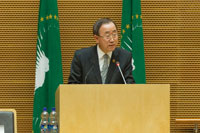 "We have 1,000 days to reach our Millennium Development Goals (MDGs). Now is the time to finish the job by accelerating progress," United Nations Secretary-General Ban Ki-moon said on the margins of the African Union Summit. Important successes have been observed in education and health targets, however, millions remain affected by poverty. In his address to Heads of State and Governments at the summit, the Secretary-General noted that success with accelerating the MDGs, "will depend on ownership by governments and civil society." Read the Secretary-General's address.
"We have 1,000 days to reach our Millennium Development Goals (MDGs). Now is the time to finish the job by accelerating progress," United Nations Secretary-General Ban Ki-moon said on the margins of the African Union Summit. Important successes have been observed in education and health targets, however, millions remain affected by poverty. In his address to Heads of State and Governments at the summit, the Secretary-General noted that success with accelerating the MDGs, "will depend on ownership by governments and civil society." Read the Secretary-General's address.
Achieving the MDGs in Latin America and the Caribbean
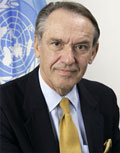 In his address to a summit in Chile, the United Nations Deputy Secretary-General urged regional leaders to apply their tradition of cooperation and partnership towards accelerating progress on the Millennium Development Goals (MDGs).
In his address to a summit in Chile, the United Nations Deputy Secretary-General urged regional leaders to apply their tradition of cooperation and partnership towards accelerating progress on the Millennium Development Goals (MDGs).
At a separate press conference, UN Deputy Secretary-General Jan Eliasson highlighted that more needs to be done for water and sanitation MDGs targets. 783 million people don’t have access to clean, relatively safe, water and 2.5 billion people don’t have sanitation. "And this is the main reason why more than 3,000 children die every day under the age of five, because of diarrhea, dysentery, dehydration and cholera," Eliasson added. Read his remarks to the European Union-Latin America summit.
Charting progress on gender equality and women’s empowerment
With respect to MDG 3, which targets gender equality and women’s empowerment, progress has been made in a number of gender dimensions, such as in education and economic gains. However, persistent gender gaps remain and affect the achievement of other MDGs such as maternal mortality. UN Women and the UN Statistics Division have developed a progress chart on Goal 3 that also tracks the impact of gender equality on the achievement of each of the remaining seven MDGs
![]() .
.
World Malaria Report 2012
According to the World Health Organization’s World Malaria Report 2012, 50 countries around the world are on track to reduce their malaria case incidence rates by 75 per cent by 2015. While progress has been made, Dr. Robert Newman, Director of the WHO Global Malaria Programme in Geneva, says, “Global targets for reducing the malaria burden will not be reached unless progress is accelerated in the highest burden countries,” such as in India and countries in sub-Saharan Africa. Fourteen endemic countries account for an estimated 80 per cent of malaria deaths.
The World Malaria Report 2012 also indicates that a slowdown in international funding for fighting malaria may impact progress made towards the health-related targets of the MDGs.
World AIDS Day: Getting to Zero
In his statement to mark World AIDS Day, UN Secretary-General Ban Ki-moon says, “Zero new HIV infections, zero discrimination, and zero AIDS-related deaths by 2015 are achievable. On this World AIDS Day, let us commit to build on and amplify the encouraging successes of recent years to consign HIV/AIDS to the pages of history.” A recent report by UNAIDS shows that 25 countries, since 2001, have reduced new infections by more than 50% and in the past two years there has been a 60% increase in the number of people accessing life-saving treatment. The progress is significant, but there is more work to do. According to the Executive Director for UNAIDS, Michel Sidibé, “We only have a thousand days left before the deadline of the 2015 global AIDS targets.”
State of World Population 2012
According to a new report launched by the United Nations Population Fund, UNFPA, ensuring the availability of voluntary family planning to everyone in developing countries would reduce costs for maternal and newborn health care by $11.3 billion annually. The State of World Population 2012 report emphasizes that family planning goes beyond just an economic issue and is connected to human rights and access to education. “Family planning has a positive multiplier effect on development,” said UNFPA Executive Director Dr. Babatunde Osotimehin. The report provides evidence of how teenage motherhood reduces a girl’s chances of obtaining a high school diploma by up to 10 per cent. Looking ahead, the report also estimates that 3 million fewer babies would die in their first year of life if 120 million more women had access to family planning.
Ending the Violence of Extreme Poverty

17 October marks the International Day for the Eradication of Poverty, focusing on the theme: “Ending the Violence of Extreme Poverty: Promoting Empowerment and Building Peace". "On this International Day, let us make an investment in our common future by helping to lift people out of poverty so that they, in turn, can help to transform our world," said UN Secretary-General Ban Ki-moon. An official commemoration for the Day takes place in NY. The public is also encouraged to join a social media action to raise awareness of progress made in the fight against poverty and the need to accelerate action to achieve the MDGs using #endpoverty.
World Food Day: agricultural cooperatives to end global hunger
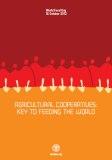
As nearly 870 million people still go hungry, World Food Day highligted the role of cooperatives in improving food security and contributing to the eradication of hunger. “Owned by their members, they can generate employment, alleviate poverty, and empower poor and marginalized groups in rural areas” said Secretary-General Ban Ki-moon. A report launched by UNEP, in collaboration with IFAD, FAO, WFP, World Bank, warns that the ecological foundations that support food security, including biodiversity are being undermined.
MDG hunger target is within reach
New findings from the FAO's report, 'The State of Food Insecurity in the World 2012', shows that progress in reducing hunger during the past 20 years has been better than previously believed. Given renewed efforts, it may be possible to reach the MDG hunger target at the global level by 2015. However, the number of people suffering from chronic undernourishment remains high. This year's report also discusses the role of economic growth in reducing hunger. The report underlines that economic and agricultural growth need to be "nutrition-sensitive" in order to lead to better nutritional outcomes for the poor.
UN new call to achieve zero hunger
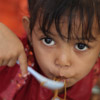
A high-level meeting on Scaling Up Nutrition (SUN), held at the margins of the 67th session of the General Assembly, and led by United Nations Secretary-General Ban Ki-moon, gathered Heads of State, civil society, private sector representatives, and other government and UN officials. Participants announced progress in the fight against hunger and under-nutrition and ushered in new commitments. “I commend the achievements of the SUN Movement. More than 56 million stunted children have a better chance to grow more strong and healthy,” said the Secretary-General.
Watch the High-level meeting on Scaling Up Nutrition
Read the Scaling Up Nutrition Press Release
UN final push to eradicate polio
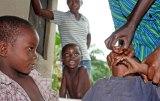
World leaders, donors and experts gathered at the UN Headquarters at the margins of the 67th session of the General Assembly to vow to capitalize on progress achieved this year and to step up the fight to eradicate polio, a vaccine-preventable disease that is more than 99 percent eliminated from the world. “Every child should have the right to start life with equal protection from this disease. That’s why I have made eradicating polio a top priority for my second term as Secretary-General,” said UN Secretary-General Ban Ki-moon.
Watch the event on “Our Commitment to the Next Generation: The Legacy of a Polio Free World”
Press Release on ending polio
New UN $1.5 billion initiative to achieve universal education
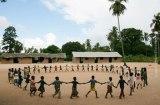
UN Secretary-General Ban Ki-moon announced $1.5 billion in commitments for a new initiative to increase access to, and the quality of, education for children worldwide. “We are here today because we know every child everywhere deserves that same chance”, Mr. Ban said at the launch of the Education First initiative, at the margins of the 67th session of the General Assembly in New York. The initiative will focus on three priorities over the next five years: putting every child in school, improving the quality of learning and fostering global citizenship through education.
Watch the launch event of Education First
Education First Press Release
First High-Level Panel on Post-2015 Development Agenda
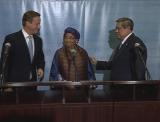
The first meeting of the High-Level Panel on the Post-2015 Development Agenda was held at United Nations Headquarters on the margins of the 67th General Assembly session. On this occasion, the three co-Chairs, President Susilo Bambang Yudhoyono of Indonesia, President Ellen Johnson-Sirleaf of Liberia and Prime Minister David Cameron of the United Kingdom, gave remarks on the post-2015 agenda and the objectives for the work of the 27-member Panel, made up of civil society, private sector and government leaders.
Watch the media stakeout by the three Co-Chairs of the Secretary-General’s High-level Panel on the Post-2015 Development Agenda
MDG Advocates urge intensified efforts to achieve anti-poverty goals

Meeting at UN Headquarters against the backdrop of the opening of the 67th General Assembly session, UN Secretary-General Ban Ki-moon’s MDG Advocacy Group – eminent personalities from the private sector, academia, governments and civil society – urged the international community to intensify efforts to achieve the MDGs in the final three years until their 2015 target date. The group, an “inspiring” example of partnership, commented Mr. Ban, is co-chaired by Julia Gillard, Prime Minister of Australia, and Paul Kagame, President of Rwanda.
Watch the media stakeout of the Secretary-General’s MDG Advocacy Group
Press Release
Aishwarya Rai Bachchan joins UN fight against HIV/AIDS
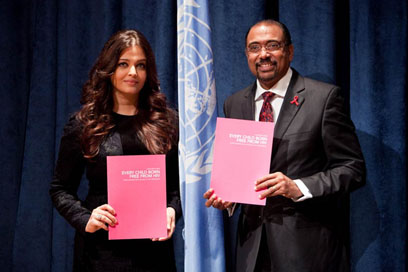
UNAIDS Executive Director, Michel Sidibé announced the appointment of Indian icon and former Miss World winner Aishwarya Rai Bachchan as UNAIDS International Goodwill Ambassador, to focus helping the Organization’s efforts in combating the spread of HIV infections in children. “I am honoured to accept this appointment,” Mrs. Rai Bachchan said. “Spreading awareness on health issues, especially related to women and children, has always been a priority for me. And now, as a new mother, I can personally relate to this – the joys and concerns of every mother and the hope that we have for our children”, she added.
MDG gains risk slowing under declining aid — UN report says
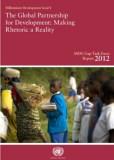
Despite several important global targets being met ahead of the 2015 deadline, for the first time in many years aid shows a decline that risks slowing the momentum of significant development gains, warns the 2012 MDG Gap Task Force Report issued today and entitled: "The Global Partnership for Development: Making Rhetoric a Reality". UN Secretary-General urges development partners to deliver on commitments to reverse the trend, as otherwise fewer of the MDGs will be reached in fewer countries by the 2015 deadline.
Read the UN Secretary-General's remarks for the launch of the MDG Gap Task Force Report 2012 in New York on 20 September.
Read the 2012 MDG Gap Task Force Report press material here.
New Sustainable Development Solutions Network launched by Ban Ki-moon

UN Secretary-General Ban Ki-moon will launch the Sustainable Development Solutions Network, a new independent global network of research centres, universities and technical institutions to help achieve sustainable development. As part of the UN mandate on post-2015 and the outcome of the Rio + 20 Conference, the network will be directed by Professor Jeffrey D. Sachs, director of the Earth Institute and Special Advisor to the UN Secretary-General on the MDGs.
High-level Panel on the Post-2015 Development Agenda

On 31 July 2012, Secretary-General Ban Ki-moon appointed 26 civil society, private sector and government leaders from all regions to a High‑level Panel to advise on the global development agenda beyond 2015. "I have asked my High‑level Panel to prepare a bold yet practical development vision to present to Member States next year,” said the UN chief. “I look forward to the Panel’s recommendations on a global post-2015 agenda with shared responsibilities for all countries and with the fight against poverty and sustainable development at its core.”
With three MDG targets achieved, global partnership for development is key to 2015 success, UN report says
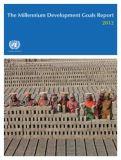
Three important targets on poverty, slums and water have been met three years ahead of 2015, says the 2012 Report on the Millennium Development Goals (MDGs), launched today by UN Secretary-General Ban Ki-moon. Meeting the remaining targets, while challenging, is possible - but only if Governments do not waiver from their commitments made over a decade ago. “The current economic crises besetting much of the developed world must not be allowed to decelerate or reverse the progress that has been made. Let us build on the successes we have achieved so far, and let us not relent until all the MDGs have been attained”, UN Secretary-General Ban Ki-moon said.
The new 2012 MDG Progress Chart is also available.
2012 Report on the Millennium Development Goals press release
Task Team Report: Realizing the Future We Want For All
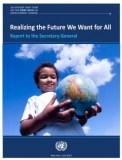
In this report to prepare for an ambitious development agenda beyond 2015, the UN System Task Team lays out a vision for ensuring that ensure that globalization becomes a positive force for all the worlds’ peoples of present and future generations. The report comes as part of open, inclusive consultations on the way forward after 2015.
New Online Platform to Track Progress on MDGs
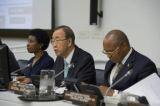
A new online platform, “Integrated Implementation Framework”, was launched by the UN Secretary-General Ban Ki-moon to track the progress on the financial and policy commitments made by countries towards realizing the MDGs. “A one-stop shop to monitor all commitment made by Member States to help meet the Millennium Development Goals,” Mr. Ban said. “This tool should help us to make good on our pledges and identify the gaps to retool our efforts” added UN Deputy Secretary-General Asha-Rose Migiro.
Global Environment Outlook: Environment for the future we want

The fifth edition of the Global Environmental Outlook (GEO-5) was launched by the UN Environment Programme. On the eve of the Rio+20 Summit, the GEO-5 assessed 90 of the most-important environmental goals and objectives and found that significant progress had only been made in four, stressing that drastic actions and big-scale measures are needed to reverse the unsustainable pattern the planet is on.
Read the Global Environmental Outlook launch press release.
World Environment Day: “Green Economy: Does it include you?”

This year’s theme for World Environment Day, Green Economy: Does it include you?, seeks to underscore the need for everyone to play a part in keeping humankind’s ecological footprints within planetary boundaries. “Rio+20 is our opportunity to deepen global commitment to sustainable development,” said Secretary-General Ban Ki-moon. “We should agree that the world needs a set of sustainable development goals that will build on the Millennium Development Goals”, he added.
Focus on the world’s oceans for Biodiversity Day

The 2012 International Day for Biological Diversity was observed on 22 May on the theme of marine diversity. “Despite its importance, marine biodiversity… has not fared well at human hands,” said the UN Secretary-General Ban Ki-moon in a message to mark the Day. In the lead-up to Rio+20 Mr. Ban added: “By taking action at the national, regional and global levels…we can achieve…a crucial step in protecting marine biodiversity for the future we want.”
Maternal deaths halved in 20 years, but more progress needed

Although greater progress is still needed in significantly reducing maternal deaths, the number of women dying of pregnancy and childbirth related complications has almost halved in 20 years according to a report, Trends in Maternal Mortality: 1990 to 2010, published by the UN Population Fund (UNFPA), the World Health Organization (WHO), the UN Children’s Fund (UNICEF) and the World Bank.
Read the press release on the Maternal Mortality report.
Despite progress, malaria kills one child every 45 seconds

On the occasion of World Malaria Day Secretary-General Ban Ki-moon called on countries to intensify their efforts to combat the disease, stressing that despite remarkable progress in recent years, much more needs to be done to end the “monumental tragedy” of one child dying every minute from the disease. Mr. Ban was joined in a special video message by Mr. Shaquille O’Neil, NBA Champion.
Celebrating International Mother Earth Day ahead of Rio+20

The United Nations celebrated International Mother Earth Day with many special events and activities, two month ahead of Rio+20, the UN Conference on Sustainable Development to be held in Rio in June 2012. “Mother Earth belongs to us all; Rio+20 is a once-in-a-generation opportunity that all of us must seize” said the UN Secretary-General.
New Lead Group to scale up nutrition
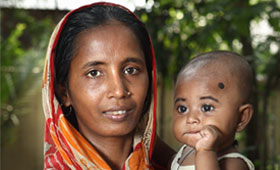
The UN Secretary-General appointed 27 global leaders to head the Scaling Up Nutrition (SUN) Movement, a worldwide effort to address maternal and child nutrition as keys to progress in health and development. Members of the Lead Group include Heads of State, representatives of the donor, civil society, and business communities, as well as UN system organizations. “Never before have so many leaders, from so many countries and fields, agreed to work together to improve nutrition,” said Secretary-General Ban Ki-moon.
2012 World Water Day: target 7.C of the MDGs met before the 2015 deadline
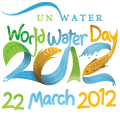
In the lead-up to Rio+20, the 2012 World Water Day emphasized the importance of universal access to water to all to end famine, drought and political instability.
It also marked the achievement of MDG target 7.c (halving the proportion of people without sustainable access to safe drinking water) making it amongst the first MDG targets to be met, well in advance of the 2015 deadline.
Read Secretary-General Ban Ki-moon’s message
2012 International Women's Day: “Empower Rural Women – End Hunger and Poverty”
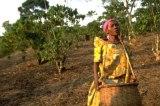
On the occasion of International Women’s Day UN officials such as UN Secretary-General, or Michelle Bachelet, head of UN Women, stressed that women’s participation in all aspects of society was more important than ever, as witnessed last year in the context of the global economic crisis, political transitions in the Arab world and elsewhere, and environmental disasters.
MDGs: Encouraging results
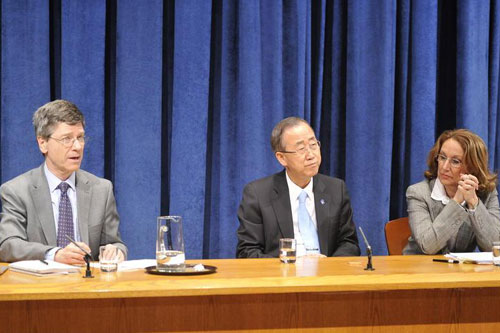
Despite remaining challenges, encouraging results regarding decline of extreme poverty, a better access to water, progress in combating tuberculosis and malaria, as well as a better gender parity in primary school enrolment were pointed out by the UN Secretary-General at a press conference he gave with Rebeca Grynspan of UNDP and Special Adviser Jeffrey Sachs. “These are major achievements. The MDGs brought not only better results but also better ways of measuring that have led to greater accountability”, he said.
World Bank’s new data shows drop in extreme poverty despite persisting vulnerabilities

In every region of the developing world, the percentage of people living on less than $1.25 a day and the number of poor declined between 2005-2008, according to estimates released by the World Bank. This across-the-board reduction over a three-year monitoring cycle marks a first since the Bank began monitoring extreme poverty. "We are now confident that the developing world has reached the first of the Millennium Goals " said Martin Ravallion, director of the World Bank's research group and lead author of the report.
UNICEF’s 2012 “State of the World's Children” report calls for focus on urban children
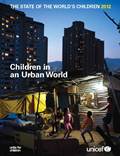
Hundreds of millions of children in cities across the world are growing up in poverty and enduring deprivation, according to UNICEF’s “State of the World’s Children 2012”.
Despite growing up in close proximity to modern facilities and basic services, many children in urban areas lack access to electricity, clean water and education. They are also at high risk of contracting diseases due to unsanitary conditions and suffering from malnutrition, the report highlights.
Launch of UN International Year of Sustainable Energy for All
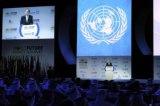
As billions of people worldwide still lack access to modern energy, the UN launched the International Year of Sustainable Energy for All and called on governments, the private sector and civil society to help expand energy access, improve efficiency and increase the use of renewables. UN Secretary-General Ban Ki-moon stressed that energy is central to everything, from powering economies to achieving the MDGs. “It is the golden thread that connects economic growth, increased social equity and preserving the environment,” he said during the launch in Abu Dhabi on 16 January 2012.
Climate change deal reached in Durban

Countries meeting in Durban, South Africa, have delivered a breakthrough on the future of the international community’s response to climate change, whilst recognizing the urgent need to raise their collective level of ambition to reduce greenhouse gas emissions to keep the average global temperature rise below two degrees Celsius. Secretary-General Ban said the new accord was “essential for stimulating greater action and for raising the level of ambition and the mobilization of resources to respond to the challenges of climate change.”
World AIDS Day, end to epidemic is within reach ?
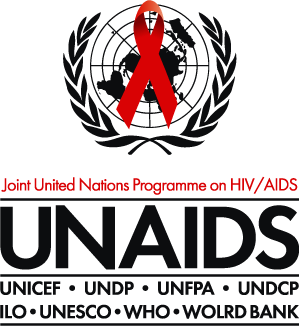
“The progress we have made so far is proof that we can realize our vision of zero new HIV infections, zero discrimination and zero AIDS-related deaths,” said the Secretary-General Ban Ki-moon as the UN marked World AIDS Day on 1 December. A new report by UNAIDS released on 21 November shows that 2011 was a game changing year for the AIDS response with unprecedented progress in science, political leadership and results.
Climate Change discussed in Durban at UN Conference
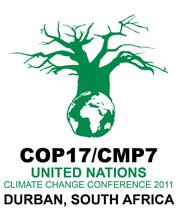
The UN Climate Change Conference kicked off in Durban, South Africa, with thousands of representatives from governments, NGOs and civil society in order to advance ways to cut global carbon emissions and pollution and determine the future of the Kyoto Protocol. The outcome of the Conference is also likely to influence the upcoming Rio+20 conference on sustainable development to be held in Rio in June 2012.
International Day for the Elimination of Violence against Women at the UN highlights youth leadership
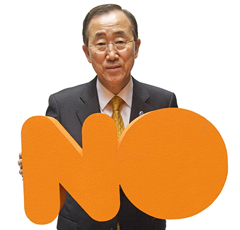
UN officials called for engaging all of society, and especially young people, to end violence against women, a scourge that spans the globe and takes many forms, including rape, domestic violence and harassment at work. “Our challenge,” said the UN Secretary-General, “is to ensure that the message of ‘zero tolerance’ is heard far and wide. To do that, we must engage all of society – and especially young people – and in particular young men and boys.” Events to mark the International Day were held in New York and worldwide thanks to the network of UN Information Centres.
Rio+20: launch of a global conversation on sustainability
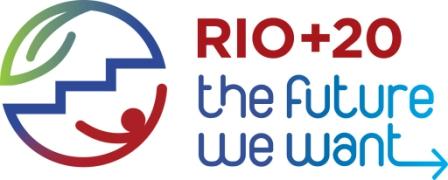
In the lead-up to Rio+20, the UN launched a campaign to invite people everywhere to engage in a global conversation about the future they want and to share their visions through the campaign’s social media platforms. All the inputs received will be combined to form an exhibit at the conference in June 2012 in Rio de Janeiro. “The Rio+20 conference offers us a unique chance to […] visualize and plan for the future we want” said the UN Secretary-General at the launch event.
Environmental problems threaten human development progress, UN report says

The annual UNDP Human Development Report was released on 2 November. In the lead-up to Rio+20, the upcoming UN conference on sustainable development, this year’s edition entitled Sustainability and Equity: A Better Future for All focuses on the link between human development and environmental sustainability. The report calls for urgent action to slow climate change, prevent further degradation and reduce inequalities as environmental deterioration threatens to reverse recent progress in human development for the world’s poorest.
A world of 7 billion: challenges and call to action

Top United Nations officials marked the global population reaching 7 billion with a call to action to world leaders to meet the challenges that a growing population poses, from ensuring adequate food and clean water to guaranteeing equal access to security and justice. “Today, we welcome baby 7 billion. In doing so we must recognize our moral and pragmatic obligation to do the right thing for him, or for her,” Secretary-General Ban Ki-moon said at a press event at UN Headquarters to mark the milestone.
International Year of Cooperatives kickoff
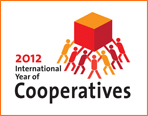
The United Nations launched the International Year of Cooperatives under the theme “Cooperative Enterprises Build a Better World”, in recognition of their contribution to socio-economic development and achievement of the MDGs. The year aims at expanding public awareness of the role of cooperatives and encouraging their growth worldwide. "Cooperatives focus on the long-term," said Deputy Secretary-General Asha-Rose Migiro. "Through their use of local labour and capital, as well as their respect for the environment, cooperatives strengthen local economies while creating a sustainable future." More details about the press conference launch.
New online participative initiative launched by UNAIDS to tackle youth and HIV

The Joint United Nations Programme on HIV/AIDS (UNAIDS) launched CrowdOutAIDS.org, an online collaborative project to crowdsource its new strategy on youth and HIV. This new project will use several social media platforms to facilitate the development of new policies to combat the pandemic. With around 3000 young people aged 15-24 becoming infected with HIV daily, making their involvement essential for an effective response to the epidemic.
Read the press release on the CrowdOutAIDS project.
New UN Office for sustainable development opens in Republic of Korea

A new UN research and training facility designed to help poorer countries pursue sustainable development to accelerate economic growth while improving the quality of life and protecting the environment was inaugurated on 19 October 2011 in the Republic of Korea. “[The new office] will contribute to advancing the implementation of the outcomes of the Rio+20 Conference,” said Sha Zukang, the Secretary-General of the Conference to be held in Brazil in June next year.
UN offices in the field Stand Up Against Poverty

Many events were organized by over twenty field UN Information Centres (UNICs) around the world to support the Stand Up Against Poverty campaign on the International Day for the Eradication of Poverty. Events included sport competitions, concerts, artistic contests, debates, amongst other initiatives, and involved school children, students, corporate companies, artists, famers, etc.
International Day for the Eradication of Poverty: People at the Centre of Inclusive Development
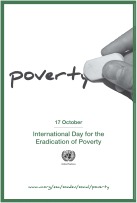
The 2011 Commemoration of the International Day for the Eradication of Poverty was held on 17 October on the theme "From Poverty to Sustainability: People at the Centre of Inclusive Development", in line with the upcoming Conference on Sustainable Development (Rio+20) and with the Secretary-General’s initiative Sustainable Energy for All. “We can meet the challenges we face. We can overcome them by putting people at the centre of our work,” said UN Secretary-General Ban Ki-moon in his message.
On World Food Day, a concerted effort to address root causes of hunger
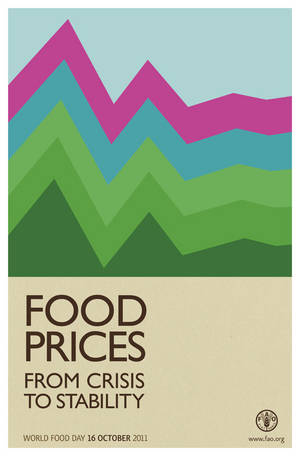
For World Food Day (16 October), the UN agencies focus on the need to ensure that children have enough to eat, and address the factors that make food unaffordable for so many. “I urge world leaders in rich and poor countries alike to invest the energy and resources necessary to win the battle against hunger — a key pillar of our efforts to achieve the MDGs,” said UN Secretary-General Ban Ki-moon in his message for World Food Day.










